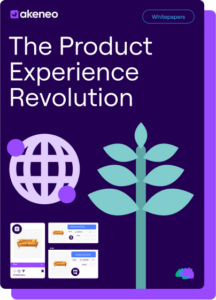As consumer demand for sustainability surges and regulations tighten, businesses face the challenge of integrating eco-friendly practices without sacrificing profitability. Discover how two pioneering companies have successfully woven sustainability into their core strategies. From educating consumers to innovating product design, these brands offer a powerful blueprint for navigating today’s sustainability-driven marketplace.

Keywords
If you’ve ever thought about where your clothes come from or what impact your everyday purchases have on the planet, you’re not alone.
More and more, people want to support brands that care about the environment as much as they do. And with governments tightening regulations, businesses are under pressure to get serious about sustainability and rethink their strategies. The challenge, however, lies in balancing these sustainability efforts with profitability—a task that requires innovation, education, and a deep commitment to ethical practices.
We had the privilege of hearing from two forward-thinking companies, Asket and Pilot, who have not only met this challenge but turned it into a strength. Their journeys provide valuable lessons on how to weave sustainability into the fabric of a business while staying true to their mission and values.
Asket, a Swedish clothing brand, has sustainability deeply ingrained in its DNA. Unlike traditional fashion brands that produce multiple collections each year, Asket offers a permanent collection of carefully designed garments, an approach that minimizes waste and encourages consumers to invest in high-quality pieces that last.
During our discussion, Vidar Trojenborg, the Head of Technology and Data at Asket, highlighted the importance of transparency and consumer education in driving sustainability: “When we set out to change the fashion industry, we realized that in order for our customers to appreciate the true value and cost of producing a garment, we needed to bring them along on the journey,” he said.
One of the key strategies Asket employs is educating customers about the environmental footprint of their purchases through detailed product pages that include each garment’s complete cost breakdown and environmental impact. By emphasizing quality over quantity, Asket encourages customers to make more thoughtful, sustainable choices.
Pilot, a company with over a century of history producing and selling writing utensils, has also made sustainability a core focus. The brand’s environmental strategy, known as the “4R Approach” (Refill, Reduce, Reclaim, Recycle) demonstrates its commitment to minimizing its environmental impact.
Julien Barabant, Pilot’s Brand & Digital Manager in Europe, explained the significance of their sustainability initiatives. “Since 2006, we have favored recycled plastic in the production of our pens. The B Green range is the first in the world made of at least 70% recycled plastic,” he noted. In an industry dominated by single-use plastics, Pilot’s initiative not only sets a new standard but also positions them as a leader in sustainable innovation, demonstrating that even traditional products can evolve with a greener mindset.

One of the most impressive aspects of Pilot’s strategy is its dedication to continuously improving its production processes. Julien shared that their bestselling pens, Frixion and G2, now include recycled materials, a significant achievement given the complexities of working with different raw materials.
As sustainability initiatives become more complex, the need for efficient management of product information across multiple channels and markets grows. This is where Akeneo steps in, providing robust Product Information Management (PIM) solutions that help brands like Asket and Pilot streamline their processes.
For Asket, ensuring transparency and educating consumers about their product’s environmental impact requires managing vast amounts of detailed product information. Akeneo’s PIM system allows Asket to store, organize, and distribute this information effectively, ensuring that every garment’s story is accurately conveyed to the consumer. As Vidar noted, “Before we had a PIM, we stored all of this information in Excel and Google Sheets, which was cumbersome and inefficient. With Akeneo, we can now manage and share product data seamlessly.”
Pilot also benefits from Akeneo’s PIM solution in maintaining consistency across its extensive distribution network. Julien emphasized, “We manage product information in 18 languages and across 26 subsidiaries. Akeneo’s PIM makes it easier for us to provide complete, accurate, and up-to-date product information to all stakeholders, ensuring that our sustainability message is not lost in translation.”
Akeneo not only helps these brands manage their current product information but also supports their future growth and sustainability initiatives. As these companies expand globally, Akeneo’s scalable solutions ensure that their product data remains consistent and accessible, no matter where their products are sold.
Both Asket and Pilot have shown that integrating sustainability into business strategies is possible and can drive innovation and customer loyalty. However, they also acknowledge the challenges that come with this journey.
For Asket, the challenge lies in maintaining transparency and educating consumers about the impact of their choices. As Vidar pointed out, “It’s important to understand that sustainability is a journey. You don’t wake up one day and say, ‘Hey, we are sustainable.’ It takes time and continuous effort.”
Pilot, on the other hand, faces the challenge of ensuring consistent product information across its extensive distribution network. Julien emphasized the importance of empowering subsidiaries and distributors with the right tools and knowledge to support their sustainability goals. “It’s a real challenge to ensure that end users receive complete and fresh information. We must consider every actor in the distribution chain,” he said.
The experiences of Asket and Pilot highlight the importance of a collective effort in achieving sustainability. Whether it’s through educating consumers, innovating production processes, or ensuring transparency across the supply chain, every step counts.
As businesses continue to navigate the complexities of sustainability and profitability, the lessons from Asket and Pilot offer a roadmap for others to follow. By prioritizing sustainability, companies not only contribute to a better planet but also build stronger, more resilient businesses for the future.
As Vidar aptly put it, “Building to last—both in terms of products and business strategies—requires thinking about the entire lifecycle, from design to production to end-of-life.” It’s a philosophy that all businesses should embrace as they chart their course towards a sustainable future.
Ready to revolutionize your approach to sustainability and product experience? Download our exclusive white paper on the PX Revolution to discover how you can align your business with the latest consumer trends and combat reckless consumerism with enhanced sustainable product experiences. Download now and take the next step towards a more sustainable future for your brand!
Discover the latest shift in consumer behavior, and learn how your organization can combat reckless consumerism with an enhanced product experience.


Keeping regulatory information accurate and up to date is vital to avoid costly penalties and safeguard consumer trust. In this guest blog by Akeneo...
Read more
The retail industry is evolving fast, and 2025 is set to bring exciting changes. Whether it’s the revival of in-store shopping, the rise of social...
Read more
Discover how businesses can easily lower their return rates this holiday season. By providing accurate product information tailored to various...
Read more